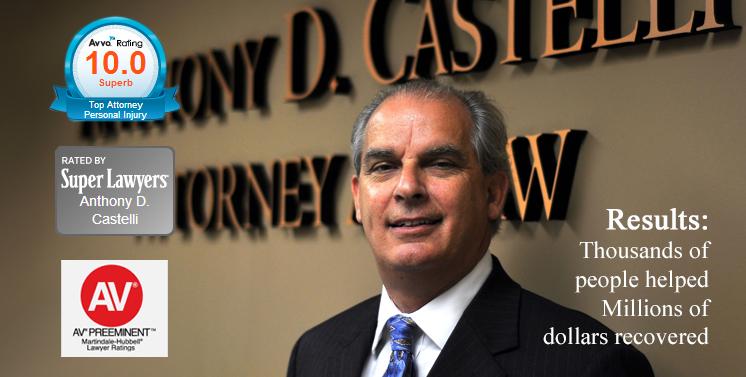Posted: July 7, 2024
The Ultimate Guide for Cincinnati Bodily Injury Victims: What You Need to Know to Recover
Being the victim of a bodily injury can be a life-altering experience. The physical pain, emotional trauma, and financial burdens can feel overwhelming. If you've been injured due to someone else's negligence, you have rights, and this guide will equip you with the knowledge you need to navigate the legal process and recover what you deserve.
Understanding Bodily Injury Law
Bodily injury law applies when you are injured due to the carelessness or recklessness of another person or entity. This can encompass a wide range of situations, including:
- Car Accidents: Rear-end collisions, head-on crashes, distracted driving accidents, and vehicle defects can all lead to serious injuries.
- Slip and Falls: Uneven sidewalks, hazardous walking surfaces, and inadequate lighting in public spaces can cause slip and fall accidents.
- Medical Malpractice: When a healthcare professional deviates from the standard of care and causes you injury, you may have a medical malpractice claim.
- Dog Bites: Dog owners are typically liable for injuries caused by their pets.
- Product Liability: Defective products can cause serious injuries.
- Workplace Accidents: Injuries sustained on the job may be covered by workers' compensation insurance, but you may also have additional legal rights.
What to Do After a Bodily Injury
The immediate aftermath of an injury can be chaotic. However, taking the following steps can protect your rights and strengthen your potential personal injury claim:
- Seek Medical Attention: Your health is the top priority. Get a thorough medical evaluation to diagnose your injuries and begin treatment. Document all doctor visits, medications prescribed, and medical bills.
- Gather Evidence: If possible, take pictures of the accident scene, your injuries, and any damaged property. Collect witness statements if available.
- Report the Accident: Depending on the nature of the accident, you may need to file a police report or report the incident to the responsible party (property owner, employer, etc.)
- Contact a Personal Injury Lawyer: An experienced personal injury lawyer can advise you of your legal rights and guide you through the claims process.
The Personal Injury Claims Process
The personal injury claims process can vary depending on the specifics of your case. However, here's a general overview:
- Consultation: An attorney will review your case details and determine if you have a viable claim.
- Investigation: The lawyer will gather evidence, interview witnesses, and obtain medical records.
- Demand Letter: A formal demand letter will be sent to the at-fault party's insurance company outlining your injuries, damages, and proposed settlement amount.
- Negotiation: The lawyer will negotiate with the insurance company to reach a fair settlement.
- Litigation: If a settlement cannot be reached, your lawyer may recommend filing a lawsuit.
What Damages Can You Recover?
A personal injury lawsuit aims to recover compensation for the losses you've suffered due to the negligence of another party. Recoverable damages can include:
- Medical Expenses: Past, present, and future medical costs associated with your injury.
- Lost Wages: Compensation for wages lost due to time off work for treatment or recovery.
- Pain and Suffering: Compensation for the physical and emotional pain caused by your injuries.
- Loss of Earning Capacity: If your injury affects your ability to work in the future, you may be able to recover compensation for lost earning potential.
- Property Damage: Reimbursement for any property damaged in the accident (e.g., car repairs).
The Importance of Hiring a Personal Injury Lawyer
While it's technically possible to navigate the personal injury claims process yourself, hiring an experienced personal injury lawyer is highly recommended. An attorney can:
- Investigate Your Case Thoroughly: A lawyer has the resources and expertise to conduct a comprehensive investigation, gather essential evidence, and identify all liable parties.
- Negotiate Effectively: Insurance companies are notorious for offering lowball settlements. An attorney will advocate for you and fight to secure the maximum compensation you deserve.
- Handle Complexities: Personal injury cases can involve complex legal issues. A lawyer can ensure all legal procedures are followed correctly and protect your rights throughout the process.
- Reduce Stress: Dealing with the aftermath of an injury is stressful enough. An attorney can handle the legal legwork, freeing you to focus on your recovery.
Moving Forward After a Bodily Injury
The road to recovery after a bodily injury is long and challenging. you don't have to fight alone. .
Sources:
https://www.castellilaw.com/personal-injury-practice-areas
- National Highway Traffic Safety Administration (NHTSA): https://www.nhtsa.gov/
- National Floor Safety Institute (NFSI): https://nfsi.org/
- American Medical Association (AMA): https://www.ama-assn.org/
- American Bar Association (ABA): https://www.americanbar.org/
- American Bar Association (ABA): https://www.americanbar.org/groups/tort_trial_insurance_practice/committees/products_liability/
- U.S. Department of Labor (DOL): https://www.dol.gov/general/topic/workc
Gemini AI


